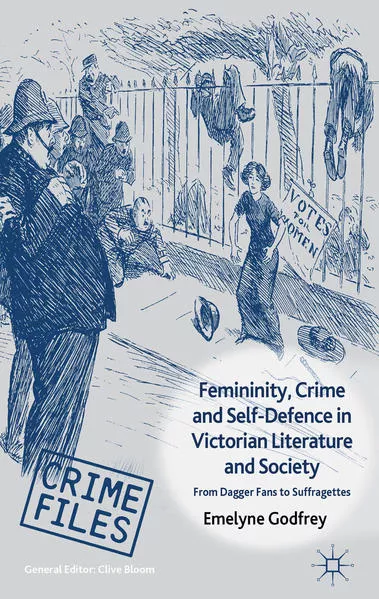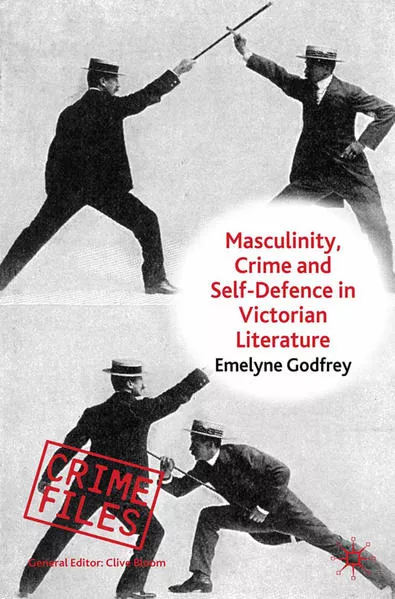
- Publikationen ca: 4
- Buchbewertungen ca: 6
- Fragen & Antworten
E. Godfrey
- Femininity, Crime and Self-Defence in Victorian Literature and Society
- Masculinity, Crime and Self-Defence in Victorian Literature
Emelyne Godfrey graduated with a PhD in English from Birkbeck College, University of London, UK. A freelance writer and researcher, she has written academic articles, dictionary and encyclopaedia entries and poetry. She is a regular contributor to History Today and is the Publicity Officer for the H.G. Wells Society.
Femininity, Crime and Self-Defence in Victorian Literature and Society
This exploration into the development of women's self-defence from 1850 to 1914 features major writers, including H.G. Wells, Elizabeth Robins and Richard Marsh, and encompasses an unusually wide-ranging number of subjects from hatpin crimes to the development of martial arts for women.
Femininity, Crime and Self-Defence in Victorian Literature and Society
This exploration into the development of women's self-defence from 1850 to 1914 features major writers, including H.G. Wells, Elizabeth Robins and Richard Marsh, and encompasses an unusually wide-ranging number of subjects from hatpin crimes to the development of martial arts for women.
Masculinity, Crime and Self-Defence in Victorian Literature
Now in paperback, this book considers crime fighting from the perspective of the civilian city-goer, from the mid-Victorian garotting panics to 1914. It charts the shift from the use of body armour to the adoption of exotic martial arts through the works of popular playwrights and novelists, examining changing ideals of urban, middle-class heroism.
Masculinity, Crime and Self-Defence in Victorian Literature
Now in paperback, this book considers crime fighting from the perspective of the civilian city-goer, from the mid-Victorian garotting panics to 1914. It charts the shift from the use of body armour to the adoption of exotic martial arts through the works of popular playwrights and novelists, examining changing ideals of urban, middle-class heroism.



